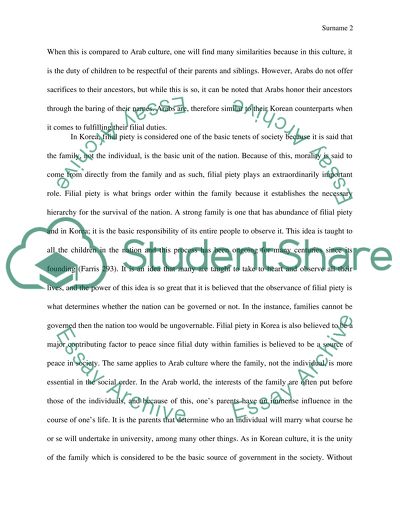Cite this document
(“Filial Piety of Korea and Its Importance Essay Example | Topics and Well Written Essays - 1000 words”, n.d.)
Retrieved from https://studentshare.org/sociology/1469451-filial-piety-of-korea-and-its-importance
Retrieved from https://studentshare.org/sociology/1469451-filial-piety-of-korea-and-its-importance
(Filial Piety of Korea and Its Importance Essay Example | Topics and Well Written Essays - 1000 Words)
https://studentshare.org/sociology/1469451-filial-piety-of-korea-and-its-importance.
https://studentshare.org/sociology/1469451-filial-piety-of-korea-and-its-importance.
“Filial Piety of Korea and Its Importance Essay Example | Topics and Well Written Essays - 1000 Words”, n.d. https://studentshare.org/sociology/1469451-filial-piety-of-korea-and-its-importance.


